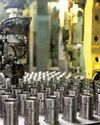The party ended in 2008. But the Tatas, the Mittals, the Ruias and several other large Indian corporates that went global, fuelled with debt, during the 2003-07 bull run, are still paying for it.

Debt leads to fragility’ is a key message that Nassim Nicholas Taleb, risk analyst and author, has harped on for a long time. This lesson is being driven home to an increasing number of Indian companies, which had binged on debt to fuel large acquisitions a decade ago. The first wave of Indian companies to have gone global during the 2003-07 bull market is still facing the long hangover of that party.
On 11 April 2016, Tata Steel announced the sale of its long products division in Europe for ‘a nominal consideration’ — reportedly £1. This came less than two weeks after the company announced that it was seeking to “explore all options for portfolio restructuring including the potential divestment of Tata Steel UK, in whole or in parts.” Tata Steel has already suffered a hit of £2 billion (approximately Rs 19,000 crore) in the past five years from its UK business. The proximate cause for the distress is the slowdown in China; as steel demand in China has reduced, Chinese steelmakers are dumping the metal across the world, hitting profitability of Tata’s UK operation.
Effectively, Tata Steel has sold off about one-third of its European capacity for just £1. The debt position of the company remains unchanged, says brokerage house Morgan Stanley in its note on the transaction. This means the company has literally given the asset away. Even so, the development is being seen as positive — brokerage house UBS termed it a “welcome conclusion of Tata Steel’s long-running attempts to dispose of these assets”. Morgan Stanley has an ‘overweight’ rating on the stock while UBS rates the company a ‘Buy’.
هذه القصة مأخوذة من طبعة May 16 2016 من Businessworld.
ابدأ النسخة التجريبية المجانية من Magzter GOLD لمدة 7 أيام للوصول إلى آلاف القصص المتميزة المنسقة وأكثر من 9,000 مجلة وصحيفة.
بالفعل مشترك ? تسجيل الدخول
هذه القصة مأخوذة من طبعة May 16 2016 من Businessworld.
ابدأ النسخة التجريبية المجانية من Magzter GOLD لمدة 7 أيام للوصول إلى آلاف القصص المتميزة المنسقة وأكثر من 9,000 مجلة وصحيفة.
بالفعل مشترك? تسجيل الدخول

MEMORIES & IMPRESSIONS
Ratan Tata was an exceptional human being. He was a visionary leader, esteemed industrialist, and a humanitarian, who left an indelible mark on India and the world.

The Robotaxi Market
The robotaxi market is shaping up to be a high-stakes battleground as tech giants and automakers race to transform urban mobility.

And the Nobel Prize Goes to AI
The recent Nobel Prize T awards to AI pioneers affiliated with Google have sparked a broader conversation about Big Tech's influence on research and the limitations of traditional prize categories.

Ola Electrified
Once considered a trailblazer in India’s electric vehicle (EV) ecosystem, Bhavish Aggarwal’s Ola Electric now faces a major accountability crisis.

Sharp Slide in Industrial Output on Eve of Deepavali
India’s index of industrial production (IIP) saw a sharp reversal in August, contracting by 0.1 per cent, in stark contrast to the 4.7 per cent growth in July, mostly because of significant contractions in mining and electricity generation.

Heralding the Solar Era with Sustainable Electrification
RAJEEV KASHYAP on the economics of solar power, the hurdles in scaling it, and much more

A WELL-GREASED MACHINE
The OmniBook X14 laptop runs on first-generation Snapdragon X Elite, which bets big on Al-enabled productivity and battery life, but falls short when it comes to overall experience, says Deep Majumdar

DO NOT LETA HEALTH CRISIS RUIN YOUR FINANCIAL HEALTH
For a family of four living in a metro, it is recommended to opt for a family floater health insurance plan with a sum insured of at least Rs 15-20 lakh

Disruption Ahead: Beyond Organisation Charts and Structures
ALBERT EINSTEIN FAMOUSLY said, “We cannot solve our problems with the same thinking we used when we created them.

Dr. Rahul Shivajirao Kadam: A Visionary Leader Blending Sustainability, Innovation, And Social Empowerment
We are on the stage of global warming, and these technologies not only help prevent further damage but also leave behind a better environment for future generations.